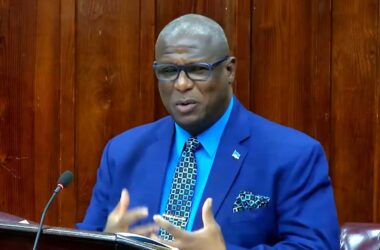PRESS RELEASE — International development agencies across the globe agree that the COVID-19 pandemic has presented to humanity a crisis like no other in history, and many have dubbed it a War. This public health crisis not only affects health care systems, but every other sector within the economy. Whilst expenditures are rising, revenues are falling at a rapid pace, impacting production and productivity in all sectors.
The COVID-19 pandemic is thus placing enormous economic and fiscal pressures on governments around the world. The implications of this crisis are even more severe for Small Island Developing States (SIDS), such as Saint Lucia, with limited resources and a narrow tax base. The government’s revenue collection is expected to decline with contractions in all major economic sectors, whilst expenditure is projected to rise significantly in response to urgent health care needs associated with the management and control of the novel coronavirus. Moreover, with numerous requests for relief by the government, the fiscal deficit and funding gap are expected to be much larger than previously anticipated.
Given the above fiscal pressures, the Department of Finance wishes to inform the public that the excise tax rates on gasoline and diesel have been allowed to move with changes in oil price movements. This policy decision may lead to excise tax rates above the previously targeted $4.00 per gallon. However, no increases in retail prices are expected at the pumps for the consuming public, given forecasts of relatively low crude oil prices in the near term.
Whilst the government is mindful of the economic strain on the general population, the government has the onerous responsibility of minimizing the spread of the corona virus by augmenting the medical systems to provide the requisite facilities, equipment and supplies.
These include expenditures related to the Victoria Hospital, which is now a designated respiratory hospital, polyclinics, and centers for quarantine and isolation. The excise tax collected in excess of $4.00 will be used for the COVID-19 health care response. Whilst this is not expected to meet the health care related expenditures for COVID-19, it is hoped that it will provide some measure of assistance. The Department of Finance will provide quarterly reports on the additional amounts earned and assigned to COVID-19 health related expenses.
Under section 20 of the Excise Tax Act Cap 15.07, the Minister responsible for Finance may, by order, amend the rates in the schedule to this Act, including fuel products. These excise tax rates, as determined by the Minister of Finance, are published via a Statutory Instrument in the Gazette in all instances where there are rate changes for any three-week period.
The Government will continue to monitor developments in world oil prices very closely and announce any further policy changes with respect to fuel prices.













